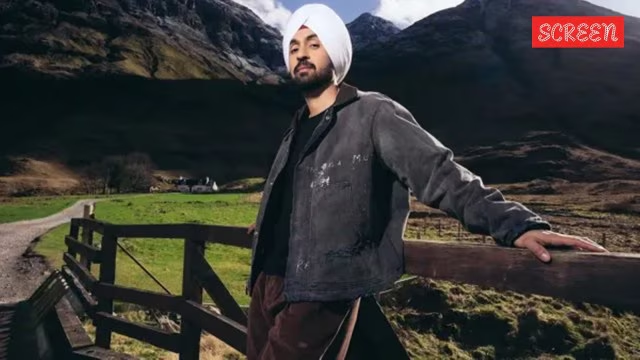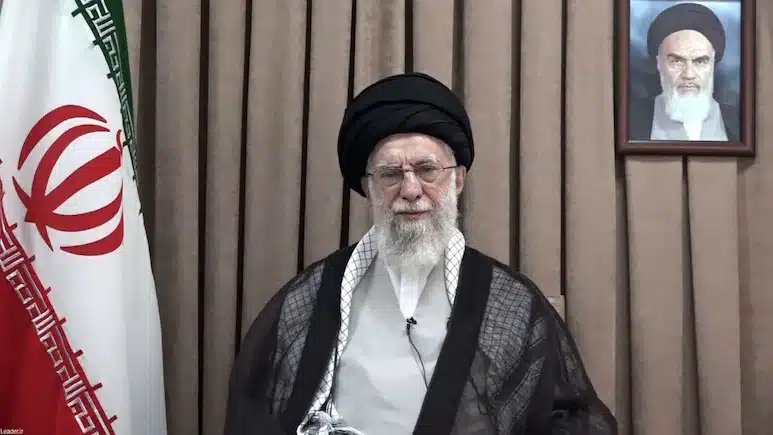Diljit Dosanjh on Music, Borders and Why Making Good Music Is the Only Answer
Introduction: At a time when public discourse and online debate are rife with political tensions, artists have to walk a fine line, staying true to themselves without alienating their audience. Diljit Dosanjh, one of India’s biggest singer-actors, recently had a run-in with one such storm. The reason? A professional partnership with Pakistani actress Hania Aamir that inspired both adoration and online recriminations. But rather than buckle under the pressure, Dosanjh sent a calm, considered message that managed to cut through that noise: “Nations are at war, music unites them.”
In that one sentence, he expresses not only his own world view but the very point of what art – particularly music – can do during troubled times. Rather than reacting with anger or defensiveness, Dosanjh held his ground with a placid demeanor – and a powerful message about the power of music to unite, to build bridges and forge peace.
The Backlash Over a Cross-Border Alliance
The collaboration in question caught the internet’s attention when videos and pictures of Diljit Dosanjh and Hania Aamir had started doing the rounds on the internet. Some fans welcomed the exchange, saying it was a hopeful sign of cross-border peace and cultural exchange, but others were not so kind. The backlash came mostly from social media users who asked why an Indian star would collaborate with a Pakistani actress, since the countries remain in a political standoff against each other.
Like so much else, it became a furor online in no time. Nationalist voices on digital platforms accused Dosanjh of disregarding Indian political sensitivities. For the times we currently live in, even a professional association across borders can be inflammatory, divisive and generate controversy. But Dosanjh did not overreact or withdraw from public view.
Instead of shying away from the controversy, he confronted it head on at one of his concerts. “People on social media are saying, ‘He is with that Pakistani actress. Yes, I am. So what? Should I not be?” The crowd roared up in approval of his position.
“Artists don’t see borders,” Dosanjh followed up. I belong to mother earth.” In those words, he was at once not just defending his choices – but defining them anew, through a global, inclusive corneas, human connection more important than political border.
Music as a Global Connector
That statement from Dosanjh – “Nation’s on war songs on war but it brings people together” – reverberates far beyond the concert hall where he made it. Music has no physical or ideological boundaries, unlike politics. Because it’s beyond language and nation state, closer to emotion, culture, and human experience.
Music, of course, has long served as a type of cultural ambassador. Music has bridged political standoffs in the past – jazz musicians touring Cold War-era Russia, Indo-Pakistani musical collaborations that transcended the countries’ differences and celebrated common heritage. Within contemporary South Asia, cultural icons including Nusrat Fateh Ali Khan and Lata Mangeshkar have been popular on both sides of the border.
This is a legacy that the Punjabi Diljit Dosanjh, who has become a global superstar, fulfills. His music resonates out to the diaspora and the honeyspot, and reinforces common traditions, languages, and values that have existed long before picket fences were drawn on land maps.
Who Is Diljit Dosanjh?
There’s more to Diljit Dosanjh than being a singer. He is a cultural ambassador who performs in music, on-screen and now the world stage. From Punjabi power-packed movies to Bollywood marvellous films, his acting has taken diverse roles to new highs. He has musically served up both love ballads and high-intensity bhangra numbers that reign supreme on playlists spanning continents.
In 2023, Dosanjh was the first Punjabi artist to perform at California-based global music festival Coachella. This achievement not just showcased his international popularity, but also took Punjabi music to the global platform. The secret to his capacity to break out and reach across cultures, from young Indians to global music fans, comes as much from his easygoing personality as his adamance not to mold himself in the manner that is expected of him.
Fame hasn’t gone to Dosanjh’s head though. For example, his Instagram feed includes everything from serious stage performances to goofy moments with fans and collaborators. That authentic voice is also what made his response to the Hania Aamir controversy sound sincere rather than scripted.
The Political Background: Indo-Pak Relations and Art
The political context of this backlash is hard to ignore. India and Pakistan have an intricate and sometimes hostile relationship. Diplomatic and military tensions in the past have interrupted artistic exchange, causing musicians, filmmakers and actors who have attempted to work across the border to face a rocky road.
Following the 2016 Uri attacks, Pakistani artists were also banned from working in India. Concerts were canceled, movies shelved, visas denied. As politics enforced borders, artists carried on – often quietly – admiring and respecting each other’s work.
For many in the region, joint endeavors between Indian and Pakistani artists represent something hopeful. They are a small step toward what’s possible when culture takes us forward, not conflict. And yet, those efforts are often the focus of political groups and internet trolls who equate cultural exchange with disloyalty.
This is why Diljit Dosanjh joining hands with Hania Aamir – be it over music, on the big or in relaxed settings – isn’t just some project; it’s a rebuff. It says that people-to-people links should not be held hostage to geopolitical theatre.
Troll Culture and Digital Nationalism
The advent of social media has allowed opinions to be expressed instantly and loudly. This can be empowering, of course, but it likewise allows misinformation, outrage and trolling to circulate at breakneck pace. In this instance, a great deal of the attack on Dosanjh was generated not by formal institutions, but by digital echo chambers.
This isn’t new for celebrities. Those who speak out, collaborate across borders or dissent from prevailing narratives are in danger. What’s special about Dosanjh is how coolly he played it.
He didn’t clap back on Twitter or square off in press releases; instead, he used his concert stage – a happy, communal space – to express what he had to say. “I am a part of mother earth” is more than just poetic. It’s a deliberate rejection of the notion that art should have a passport.
Dosanjh served his fans a lesson in resilience and grace by taking a stand without turning combative. It also set a compelling example of how artists might stand up for their principles without adding fuel to digital fires.
Art in the Time of Division
Dosanjh’s position also raises a wider discussion as to what role art might or might not play in divided societies. Should artists be confined by borders? Should cultural expression mirror political strife, or oppose it?
Most artists think it’s their job to reflect the times. But others, like Dosanjh, all themselves with providing an alternative – a vision of how things might be. He posits with words and by making that maybe it is the role of the artist not to reflect division but to resist it through a kind of unity.
The aphorism “Artists don’t consider boundaries” encapsulates that conviction. Dosanjh is advocating here for integration, not assimilation, for embracing common identity, not erasing identity. His text is a message from the heart of one man to another; a reminder that we have nationalities, but we are first and foremost human with hopes, fears and dreams that we all share.
Why It Matters
At a time when nationalistic tendencies tend to color public discourse, Dosanjh’s message rings clear. His unwillingness to be pinned down to either nationalistic or binary thinking is a breath of fresh air in discussions of identity and belonging.
His work with Hania Aamir says more about their heads getting together than mere celebrity churn. It is – or so it seems to me – about defying the narrative that culture must be held hostage to politics. It’s about whether we can accept art for what it is, without requiring that it support our flags or front lines.
And most fundamentally, it’s about empathy. When Dosanjh sings, “I belong to mother earth,” he is issuing a plea to imagine ourselves not as citizens of nations alone, but as members of a large human family.
Conclusion
Diljit Dosanjh’s composed, considered response to online trolling for working with the Pakistani actress Hania Aamir is not just another instance of a celebrity practicing resilience, but also a huge statement of the values he holds dear. His sentiment is encapsulated in the words “Nations are at war, but music brings unity” and “I belong to mother earth”, and seems to express a belief in unity, understanding, and the everlasting potential of art to unify across borders.
In a place where political passions all too often overflow into cultural realms, Dosanjh’s voice is a refreshing anomaly. In rejecting the notion that artists should reflect political fault lines, he shows us a different way forward – one in which cooperation is not synonymous with betrayal, and where our humanity trumps our hashtags.
As long as artists like him keep creating, connecting and speaking out, we can hope that in the future, music – and the messages it carries – will be a bridge, not a battlefield.
FAQs
- Why was Diljit Dosanjh criticized recently?
He was trolled for collaborating with Pakistani actress Hania Aamir due to ongoing India-Pakistan tensions. - What did Diljit say in response?
He said, “I belong to mother earth” and emphasized that artists don’t see borders. - What makes his response impactful?
His calm, non-confrontational message promoted unity instead of defensiveness. - Why is this collaboration symbolic?
It challenges nationalist boundaries and celebrates cultural connection. - How does this reflect on art in society?
It reaffirms that art can transcend politics and promote shared humanity.
Reference
Stay updated with all the latest news and insights – News Of US






